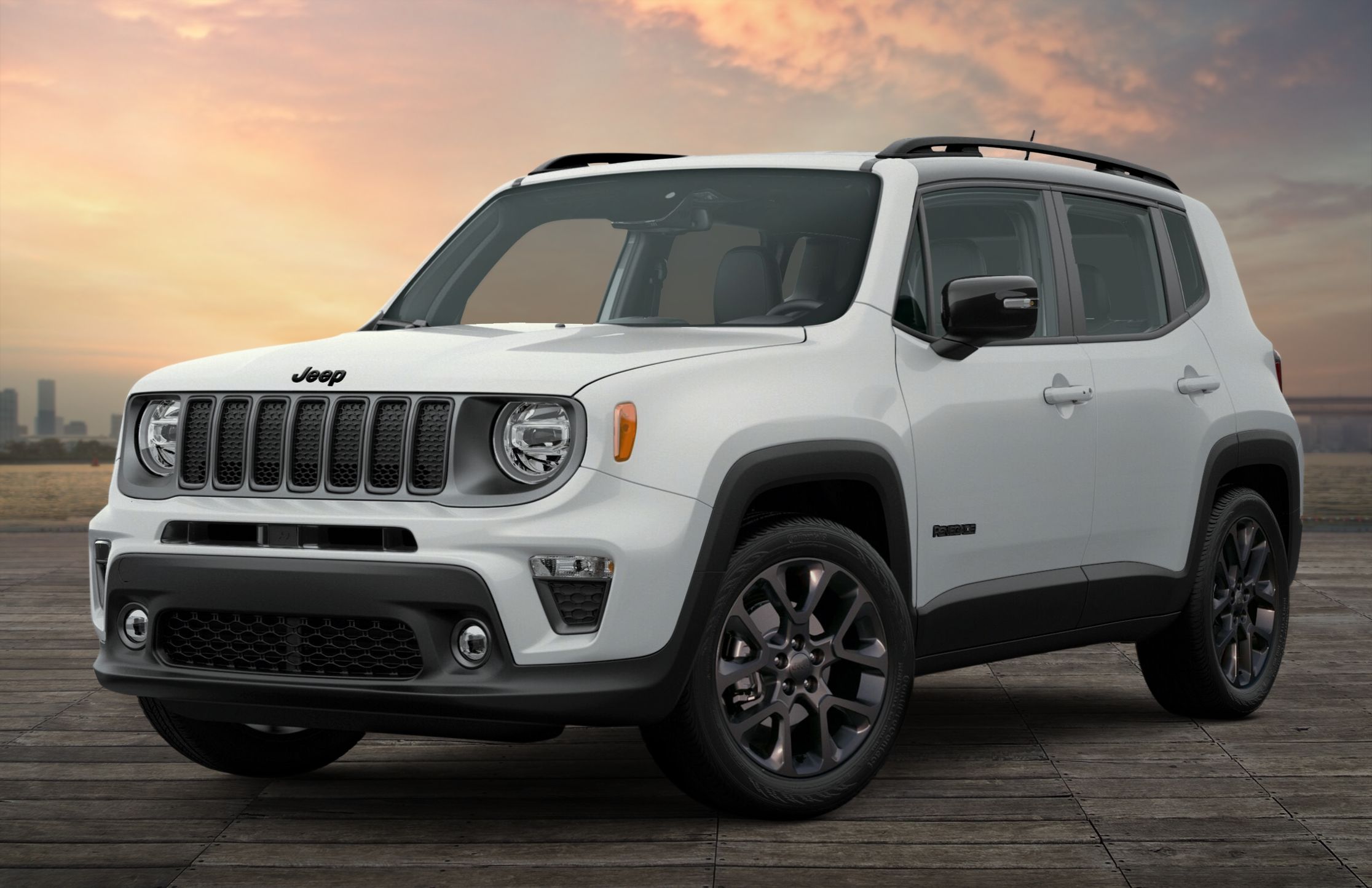Jeep Tractor For Sale: Your Comprehensive Guide to Versatility and Value
Jeep Tractor For Sale: Your Comprehensive Guide to Versatility and Value jeeps.truckstrend.com
In the vast landscape of utility vehicles and agricultural machinery, a unique contender often emerges, blending rugged durability with surprising versatility: the Jeep Tractor. Far from a factory-produced marvel, a Jeep tractor is typically a custom conversion, transforming the iconic American off-roader into a formidable workhorse capable of tackling tasks from tilling and plowing to hauling and snow removal. For homesteaders, small farm owners, land managers, or even just hobbyists seeking a cost-effective and highly capable machine, the prospect of a "Jeep Tractor for Sale" can be incredibly appealing. This comprehensive guide delves into everything you need to know about these fascinating hybrids, helping you navigate the market and make an informed purchase.
What Exactly is a Jeep Tractor?
Jeep Tractor For Sale: Your Comprehensive Guide to Versatility and Value
At its core, a Jeep tractor is a standard Jeep vehicle—most commonly older models like the Willys MB, CJ series (CJ-2A, CJ-3A, CJ-5, CJ-7), or even early YJs and TJs—that has been ingeniously modified to perform agricultural or heavy-duty utility tasks. This transformation typically involves adding specialized equipment, fundamentally altering its function from a recreational off-roader to a compact, powerful work vehicle.
Key modifications often include:
- Power Take-Off (PTO) Systems: These allow the Jeep’s engine to power external implements like mowers, tillers, and generators. PTOs can be front, rear, or even mid-mounted.
- Hydraulic Systems: Essential for operating three-point hitches, front-end loaders, or other hydraulic attachments, enabling precise control over implements.
- Three-Point Hitches: Standardized connections (Category 0, 1, or 2) that allow a wide range of agricultural implements to be attached, lifted, and lowered.
- Heavy-Duty Axles and Suspension: To handle the increased loads and stresses of tractor work.
- Specialized Tires: Agricultural lug tires or heavier-duty all-terrain tires for improved traction in challenging conditions.
- Reinforced Frames and Mounts: To support the added weight and torque of attachments.

While some custom shops specialize in these conversions, many Jeep tractors are the result of passionate DIY enthusiasts and skilled mechanics, making each one a unique blend of automotive engineering and agricultural utility.
Why Choose a Jeep Tractor? Benefits and Applications
The decision to opt for a Jeep tractor over a traditional compact utility tractor or a larger farm machine often boils down to a compelling set of advantages:
- Unmatched Versatility: A Jeep tractor is a true multi-tasker. It can plow a field, pull a trailer full of logs, clear snow from a driveway, haul feed, or even serve as a robust utility vehicle for navigating rough terrain on a large property.
- Cost-Effectiveness: Compared to brand-new compact utility tractors, which can cost tens of thousands of dollars, a well-maintained used Jeep tractor often presents a significantly more affordable entry point into mechanized farm or land management.
- Legendary Durability and Reliability: Jeeps, particularly the older, simpler models, are renowned for their robust construction and mechanical resilience. With proper maintenance, these vehicles are built to last and endure demanding conditions.
- Parts Availability: Given the widespread popularity of Jeeps, especially classic models, finding replacement parts for engines, transmissions, and other core components is generally much easier and more affordable than for obscure tractor models.
- Maneuverability and Compact Size: Many Jeep tractors retain a relatively small footprint, allowing them to operate in tighter spaces, navigate wooded areas, or access challenging terrain where larger tractors might struggle.
- Off-Road Prowess: Inheriting the Jeep’s legendary 4×4 capability, these tractors excel in mud, snow, rocky paths, and steep inclines, making them ideal for properties with varied topography.
- DIY Friendliness (for some): For those with mechanical aptitude, the relatively simple design of older Jeeps can make maintenance and even further customization more accessible.
Common Applications:
- Small-Scale Farming & Homesteading: Plowing small plots, tilling gardens, discing, planting, and harvesting.
- Land Management: Hauling firewood, clearing brush, maintaining trails, pulling post-hole diggers.
- Property Maintenance: Snow removal, landscaping, pulling utility trailers, spreading gravel.
- Hunting & Recreation: Accessing remote areas, pulling game, maintaining hunting blinds.
- Nursery & Orchard Work: Light cultivation, spraying, and hauling.
Key Considerations When Buying a Jeep Tractor
Purchasing a Jeep tractor requires a more discerning eye than buying a standard used vehicle or even a traditional tractor, given their custom nature. Here’s what to prioritize:
-
Condition of the Base Vehicle:
- Frame Integrity: Inspect for rust, cracks, or previous repairs. The frame bears the brunt of the work.
- Engine and Drivetrain: Check for leaks, unusual noises, smoke, and smooth operation. Ensure the 4×4 system engages properly.
- Transmission and Axles: Test all gears, listen for grinding, and check differential fluids.
- Brakes and Steering: Crucial for safety, especially under load.
- Electrical System: Ensure lights, gauges, and any added electrical components work.
-
Quality of the Conversion:
- Welds and Fabrication: Examine all custom-fabricated components (PTO mounts, hitch points, hydraulic pump mounts) for strong, professional-looking welds. Poor welds are a major red flag.
- Component Integration: How well are the PTO, hydraulic pump, and three-point hitch integrated? Are hoses routed safely? Are components easily accessible for maintenance?
- Hydraulic System: Check for leaks, smooth operation of cylinders, and proper fluid levels. Inquire about the pump’s capacity.
- PTO Engagement: Test the PTO to ensure it engages smoothly and holds power.
- Safety Features: Does it have a Roll-Over Protective Structure (ROPS)? Are there adequate lights for nighttime operation?
-
Attachment Compatibility:
- Understand what category three-point hitch it has (Cat 0, 1, or 2) and what implements the PTO can power (540 RPM is standard for most small implements).
- Inquire if any implements are included in the sale and test them if possible.
-
Legal and Registration Issues:
- Depending on your location and intended use, clarify if the vehicle can be registered for road use (if desired) or if it falls under farm vehicle exemptions. Laws vary by state and country.
- Ensure the seller has a clear title for the base Jeep.
-
Maintenance History:
- Ask for service records or a detailed account of past repairs and modifications. This provides insight into how well the vehicle has been cared for.
-
Test Drive and Inspection:
- Always, always test drive it under conditions similar to how you intend to use it. If possible, try it with an implement attached.
- Consider hiring a mechanic specializing in Jeeps or farm equipment for a pre-purchase inspection, especially for significant investments.
Where to Find Jeep Tractors for Sale
Finding a Jeep tractor can be a bit like a treasure hunt, as they are niche vehicles not typically found on a standard dealership lot.
- Online Marketplaces: Craigslist, Facebook Marketplace, and eBay Motors are prime hunting grounds. Use specific search terms like "Willys PTO," "Jeep with 3-point hitch," or "Jeep farm tractor."
- Specialized Forums and Communities: Online forums dedicated to classic Jeeps (e.g., Early CJ5.com, G503.com for Willys) or DIY farm equipment often have classified sections.
- Farm Equipment Auctions: Keep an eye on local and online farm auctions. Sometimes, unique items like Jeep tractors will appear.
- Local Classifieds and Word-of-Mouth: Check community bulletin boards, local newspapers, and spread the word among agricultural communities.
- Specialty Custom Shops: A few rare shops might build or refurbish these, though they will command a premium.
Tips for a Successful Purchase
- Define Your Needs: Before you start looking, clearly outline the tasks you need the Jeep tractor to perform. This will help you narrow down the type of conversion and features required.
- Set a Realistic Budget: Factor in the purchase price, potential transportation costs, and a contingency fund for immediate repairs or necessary upgrades.
- Research Specific Conversions: If you find a particular type of conversion (e.g., a Monroe lift system on a Willys), research its reputation and common issues.
- Ask Detailed Questions: Don’t hesitate to inquire about the history, specific modifications, any known issues, and why the seller is parting with it.
- Patience is Key: These aren’t mass-produced, so finding the right one might take time. Don’t rush into a purchase.
- Negotiate Respectfully: Be prepared to negotiate, but also be realistic about the value of a well-maintained, functional custom vehicle.
Price Table: Estimated Costs for Jeep Tractors for Sale
Given the custom nature of Jeep tractors, prices can vary wildly based on the base vehicle’s condition, the quality and extent of the conversion, included implements, and geographical location. The table below provides a general estimate.
| Category | Base Jeep Model Examples | Key Features / Condition | Estimated Price Range (USD) |
|---|---|---|---|
| Entry-Level / Project | Willys MB, CJ-2A/3A, early CJ-5 | Often needs significant work, basic PTO/hitch, rust present. | $2,500 – $7,000 |
| Mid-Range / Functional | CJ-5, CJ-7, YJ | Operational, well-done conversion, some wear, minor issues. | $7,000 – $15,000 |
| Premium / Specialized | Later CJ-7, TJ, professionally built | Excellent condition, professional conversion, robust hydraulics, includes implements. | $15,000 – $30,000+ |
Note: These prices are estimates and can fluctuate significantly based on market demand, location, and the unique characteristics of each custom build. Always conduct thorough due diligence.
Frequently Asked Questions (FAQ) about Jeep Tractors
Q1: Is a Jeep tractor street legal?
A1: This varies significantly by state and country. Many are registered as "farm vehicles" or "off-road vehicles" and may not be street legal for regular highway use. Always check your local Department of Motor Vehicles (DMV) regulations.
Q2: What kind of implements can a Jeep tractor use?
A2: Common implements include plows, tillers, disc harrows, cultivators, post-hole diggers, mowers (finish or brush hog), small front-end loaders, backhoes, and log splitters. Compatibility depends on the PTO type, hydraulic system capacity, and hitch category.
Q3: Are parts hard to find for a Jeep tractor?
A3: For the base Jeep vehicle (engine, transmission, axles), parts are generally readily available, especially for popular older models like the CJ series. Parts for the specific PTO or hydraulic conversion components might be more specialized, but standard hydraulic components are usually easy to source.
Q4: What’s the typical horsepower of a Jeep tractor?
A4: Horsepower varies greatly depending on the base Jeep’s engine. Older Willys and CJ models typically range from 60-125 horsepower. However, the usable power for tractor tasks is more about torque and gearing than peak horsepower.
Q5: Is a Jeep tractor safe?
A5: Safety depends entirely on the quality of the conversion and the operator’s practices. Many lack modern safety features like ROPS (Roll-Over Protective Structure) or advanced braking systems found on new tractors. Always assess the build quality, operate cautiously, and consider adding safety features if absent.
Q6: Can I build a Jeep tractor myself?
A6: Yes, many Jeep tractors are DIY projects. However, it requires significant mechanical skill, welding proficiency, knowledge of hydraulics and powertrains, and a strong understanding of safety principles. It’s not a beginner-level project.
Conclusion
The "Jeep Tractor for Sale" market offers a fascinating and often cost-effective alternative for those seeking a versatile utility vehicle with a rugged pedigree. These unique machines embody the spirit of ingenuity, transforming an iconic off-roader into a capable workhorse for diverse tasks. While the allure of their versatility and value is strong, a successful purchase hinges on thorough research, careful inspection, and a clear understanding of your needs and the vehicle’s limitations. By approaching the search with diligence and an informed perspective, you can unearth a true gem that serves your land management, farming, or recreational needs for years to come.


